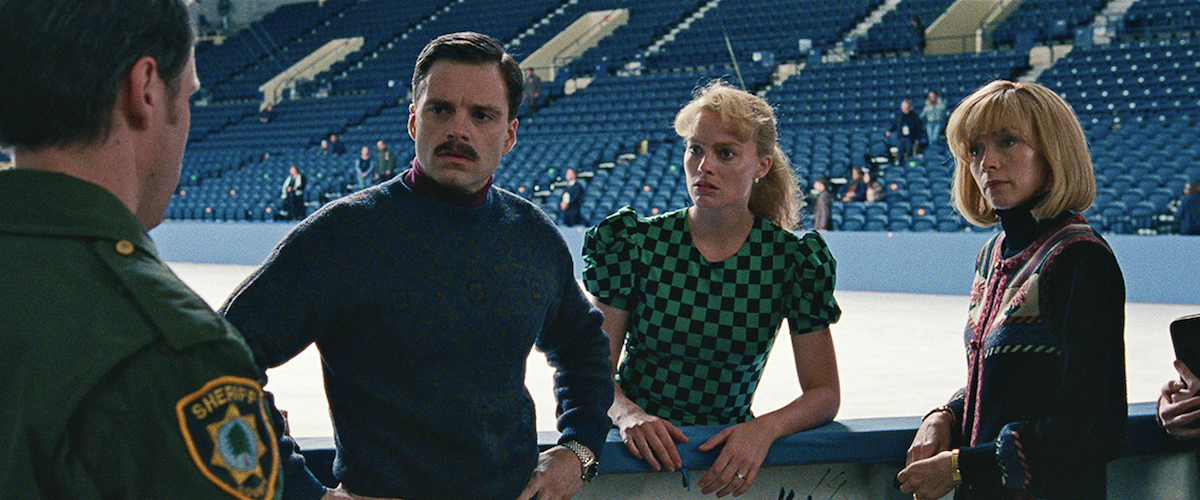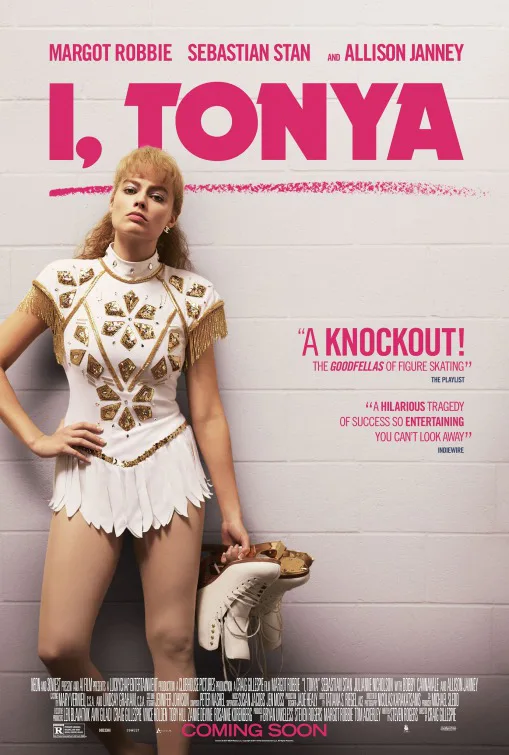You probably haven’t thought about Tonya Harding much recently. Truly, why would you? The Olympic figure skater reached the height of her fame nearly a quarter century ago for something that didn’t even happen on the ice: the notorious attack on rival Nancy Kerrigan, orchestrated by Harding’s then-husband, Jeff Gillooly, just before the 1994 U.S. Figure Skating Championships in Detroit.
Even though Harding wasn’t personally involved in the infamous, injurious leg-whacking, she may as well have been, her reputation and career were so irreparably damaged. She became a punchline, her name alone providing a bitter shorthand for scandal.
All of which makes “I, Tonya” such a wonder. Not only will it make you think about Tonya Harding again, it will make you do so with unexpected sympathy. It will make you feel for her, deeply, for the abuse and pain she’s suffered for so much of her life. Director Craig Gillespie pulls off what would seem to be an impossible high-wire act: He’s made a movie that’s affectionately mocking—of this theatrical sport, of the idiots who surrounded Harding, of this hideous moment in fashion and pop culture—without actually mocking Harding herself.
Steven Rogers’ script shows great kindness and emotional charity for this wounded figure, even as it tells her story through a whirlwind of unreliable narrators. It’s “GoodFellas” on ice—darkly comic and often just plain dark, but always breathtakingly alive. Despite the colorful glitz and cheese of the figure-skating setting, “I, Tonya” has an unmistakably tumultuous air from the very start. And at the center of the storm is Margot Robbie in the performance of a lifetime as Harding.
Robbie has steadily shown keen insight in the roles she’s chosen, a hunger for the challenge of meaty material and a clear drive to prove she’s so much more than just a beautiful face. Whether it’s as the va-va-voomy siren of “The Wolf of Wall Street” (which put her on the map), the smooth scam artist of “Focus,” the bat-wielding bad-ass Harley Quinn in “Suicide Squad” or the noble frontier woman of “Z for Zachariah,” Robbie has dazzled us with her versatility, even as she’s consistently held us with her charismatic screen presence. Here, she’s got the requisite swagger of an athlete at the top of her sport (and even learned to skate for the part), but it’s tinged with sadness as we the see the low sense of self-worth buried underneath—the result of years of physical and verbal abuse at the hands of her cruel mother.
Allison Janney absolutely tears it up as the profane, chain-smoking LaVona Harding, constantly insulting Tonya and messing with her mind in the name of making her a champion. It’s a showy, scenery-chewing performance but it’s not one-note; Janney brings an undercurrent of sorrow to the part in revealing LaVona’s twisted methodology.
But Tonya was doomed never to receive an enthusiastic embrace from the figure skating elite because she and her mother didn’t fit their superficial, socioeconomic ideals. That’s an element of Harding’s story that “I, Tonya” depicts incisively; it’s one of the key components to her tragic downfall, but it also makes her story relatable beyond the insular world of figure skating. Growing up poor in Portland, Oregon, with her frizzy ponytail and poofy, homemade costumes, Harding struggled to look the part of the pristine ice queen—something Kerrigan achieved effortlessly. Even though Harding was an extraordinarily athletic female skater—one of a rare few to this day to land a triple axel cleanly in competition—U.S. judges often didn’t give her the scores she deserved because she didn’t adhere to the image they wanted to project.
When Harding married the first man who was nice to her—at least, at first—she went from one abusive situation to another because it felt familiar, if nothing else. Sebastian Stan initially plays the part of Jeff Gillooly with a hint of benign goofiness. He’s a sleaze ball in a turtleneck and a porn mustache. But as his violent side emerges and his emotional hold on Tonya strengthens, he’s positively chilling—and your heart breaks for her all over again, because you know that no matter where she goes, she’s trapped.
Under those circumstances, it’s a miracle she could get out on the ice merely to practice, much less compete at the absolute highest echelons of the sport. And the more we learn about her life, the more it becomes sadly clear that the odds were always stacked against her.
In interviews both recreated and imagined, Gillespie depicts her rise and fall from a variety of competing perspectives and contradictory voices. (Editor Tatiana S. Riegel keeps the film moving at a propulsive pace.) We hear from Harding herself; an increasingly abrasive LaVona; Harding’s genteel coach, Diane (Julianne Nicholson); a squirmy Gillooly; and Gillooly’s delusional pal, Shawn Eckhardt (Paul Walter Hauser), Harding’s self-appointed “bodyguard” and the mastermind of what everyone bitterly refers to as “The Incident.”
Taken together, they create a picture that isn’t exactly the truth, the whole truth and nothing but. What “I, Tonya” does provide honestly, though, is a vivid slice of pop culture history—an irresistible, soapy mix of jealousy, competition and class warfare, fortified by powerful performances and unexpected emotional resonance.
Given the gripping, heightened reality of this stranger-than-fiction tale, it’s frustrating that Gillespie has chosen so many on-the-nose soundtrack selections to punctuate particular moments. “Devil Woman” by Cliff Richard starts up as LaVona barks orders on the ice at a young Tonya, played with convincing angst and heartache by Mckenna Grace. Supertramp’s “Goodbye Stranger” plays during a beautifully fluid sequence in which Harding finally finds the guts to leave Gillooly and her volatile life with him behind. Great songs, all, but the classic rock needle drops can be distractingly obvious.
Still, that’s a minor deduction in an otherwise nearly flawless program. “I, Tonya” is one of the year’s best films.




















